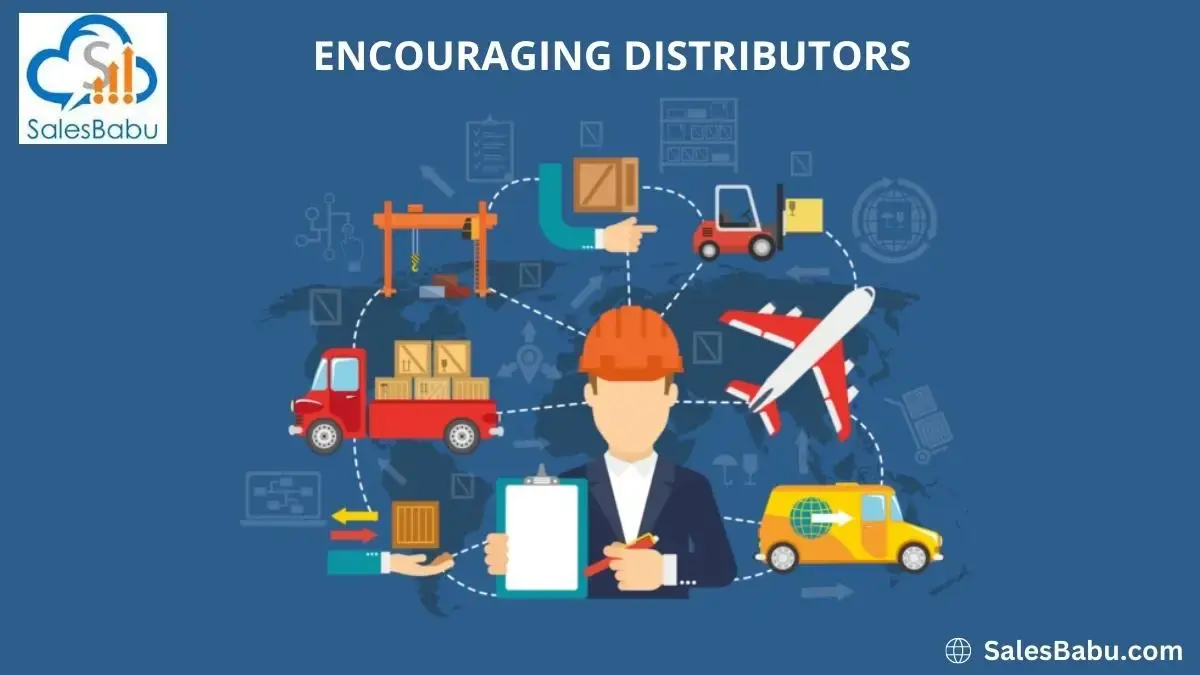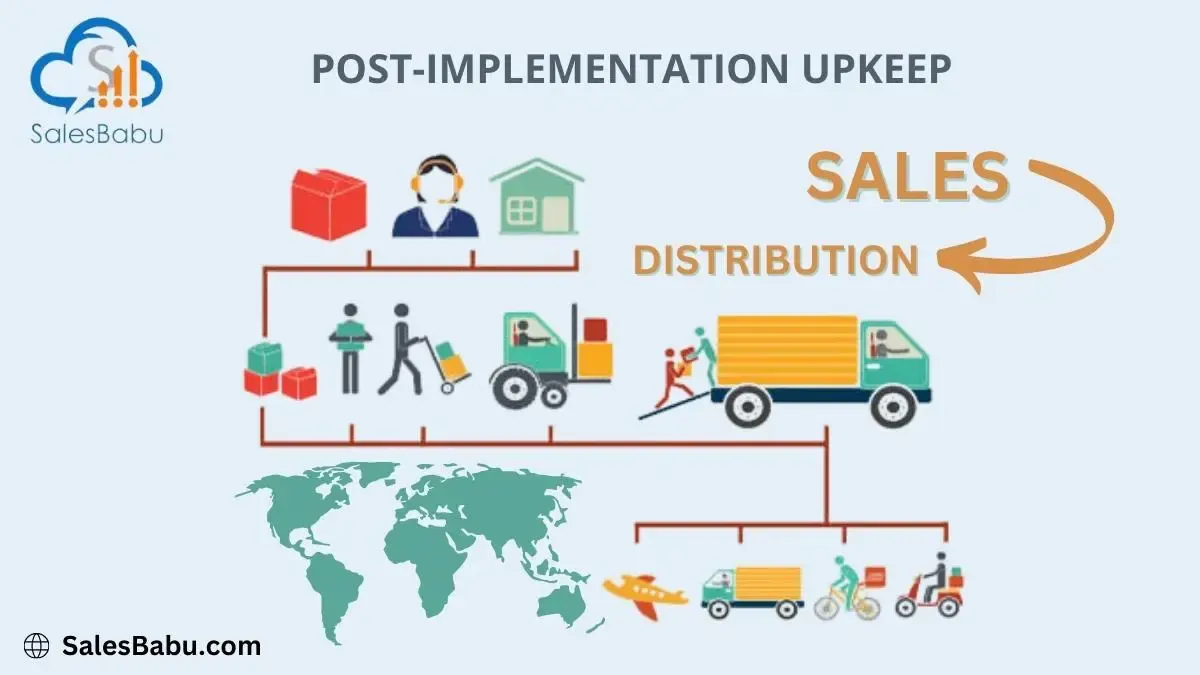What is Distribution Management System Implementation
A Distribution Management System is also often known as DMS which refers to the process of supervision of the entire and whole supply chain including but not limited to supply management, orders processing, inventory tracking, warehousing, packaging, and other logistics.
At its core, DMS can also help to integrate all these processes and stages into a single software, thereby enabling the business to function in a well-organized manner.
However, only when the Distributor Management System (DMS) is implemented efficiently, can it truly help in the improvement of the organization’s profitability.
So, what is the actual process for ideal and more importantly successful Distributor Management System (DMS) implementation? Well, that is precisely what we are about to find out!
Read More – What is a Distribution Management System?

Step 1 : Master Information Cleanup
Before implementing the Distribution Management System (DMS), it is crucial for a company to review its master data for any redundant information. This typically involves identifying inactive Stock Keeping Units (SKUs) and removing records of parties with whom the company no longer conducts business. The effectiveness of the latest DMS depends on the absence of such unnecessary data within the system.
Step 2 : Integration with Enterprise Resource Planning (ERP)
Well-renowned as one of the paramount stages in the introduction of the Distribution Management System, the assimilation with Enterprise Resource Planning is most important. However, the unification process may at the beginning seem complicated, it is beneficial for DMS compliance. Such assimilation delivers important access to detailings such as primary orders, primary sales, and the formation of latest customers and vendors.
For further insights, refer to the article on the Right Approach to Distribution Management Software (DMS).
Read More – Right Approach To Distribution Management Software (DMS)
Step 3 : Create your Company’s Invoice Template
The organization of your company’s invoice template is a main pace to make simple processes and save important time. Implementing system-generated invoices reduces the potential for mistakes and regulates effective monitoring of the invoicing systems implemented by distributors.
Step 4 : Encouraging Distributors
It is now time for your company to offer some incentives to distributors as an encouragement booster, this is one of the ways to encourage them to use the Distributor Management System platform.
Right from encouraging you to adopt new digital technological behaviors to promptly setting distributor claims, and even embracing future technologies, this process will make it all easy and approachable for your company.

Read More- Importance of Sales Tracking Software For Your Business Growth
Step 5 : Reward Compliance
Driving pattern change amongst the distributors is not at all an easy task and requires a much strategic approach.
While there shall be a few and some distributors who will happily dial the boat with your company, most will resist but some will not. An easy path to get them on board is by creating a planning and plotting to reward distributors who choose DMS compliance.
Step 6 : Ensure Post-Implementation Upkeep
While the process of installation of Distributor Management System in itself sits well with companies, it is one of the post-installation upkeep that many companies struggle with.
That said, with the help of a reliable client support team and department from the Distributor Management System (DMS) provider’s step, it will become rather convenient to follow the below-mentioned tips.
Read More – Tips For Choosing The Best Distributor Management System
- Data Entry of Goods and Related Aspects-
As important as it is to clean any old and redundant information, it is equally very important to always update the software with complete information about every product, warehouse, distributor, and so on.
This ensures easy and quick access to these important details, while also enabling mechanization and customization order processing. Moreover, it brings the entire process and stages to an optimal speed, which can not be possible if the requisite information is absent from the system.
Read More – Lead Management Software System
- Automation and Mechanization of Order Processing –
While it sometimes seems time-consuming at the very beginning, once all the requisite details and data have been entered into the system it becomes much more convenient to automate the entire process and stages right from getting orders to confirming them, from creating delivery challan to applying for generating and promoting invoices.
Needless to say, this helps in saving a significant amount of resources and time which may be rather invested in adding value to the client’s bottom line.
- Collaboration of Accounting Systems with the Distributor Management System (DMS)-
Keeping a track of the payment to be received from retailers, credit history, credit limit, and other minute details and information can become so much easier as ABC, simply by collaborating with the existing accounting system with the Distributor Management System (DMS). This will not only help to ensure that all the payments are received in full by a specific date but also encourages and motivates retailers to make timely payments.
We hope that you now understand all about the steps and process leading to the successful implementation of the Distributor Management System (DMS). If your company too have been on the lookout for just the perfect Distributor Management System solution for your company, make sure you get in touch with our experts at SalesBabu CRM right away and request a Demo!
Read More- Top Challenges in CRM Solution Implementation

Distributor Management System Implementation FAQs
What are the significant challenges in Distributor Management System (DMS) adoption?
It has been seen that Distributor Management System i.e DMS often faces very strong resistance from distributors all across the board, especially those who are either linked to small companies or work in very remote geographical areas. Some of the major challenges faced in the adoption of a Distributor Management system from the distributors’ side include –
- Lack of Skilled Resources
- Malpractices and Manipulations Exist
- Unease with Technology
- Multi-brand Distributors
What are the noteworthy features of SalesBabu CRM Distributor Management System?
Some of the prominent aspects of the SalesBabu CRM Distributor Management System are as follows –
- Order Management
- Area-Wise Sales Management
- E-Catalogue
- Payment Processing
- Supply Chain Planning
- Dealer Requirement Monitoring
- Effective Network Management
- Transparent Communication
- Timely Reports
- Automated Ordering System
Conclusion
SalesBabu CRM is always here to help. Whether your company is thinking of expanding the company with a Distributor Management System or wanting to create a better management system, request a cloud CRM demo to see how our software can help you achieve your goals in very little time.













